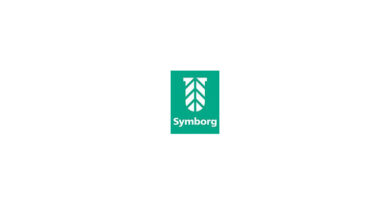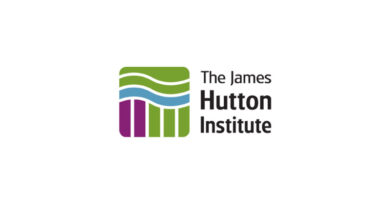
Is the EU Deregulating Pesticides? What the New Draft Really Means for Farmers, Pesticide Companies and Consumers
EU’s Draft Pesticide Overhaul Sparks Debate on Food Safety, Trade, and Farmer Access to Alternatives
25 November 2025, Brussels: A draft Food and Feed Omnibus regulation prepared by the European Commission has opened a major debate within Europe’s food and agriculture sector. The proposal suggests removing the current time-bound approvals for pesticide active substances and replacing them with open-ended authorisations, except in cases involving the most hazardous compounds. Today, active substances are approved for ten to fifteen years before requiring renewal. Under the draft, most renewals would become indefinite unless the compound qualifies as a “candidate for substitution,” is classified as hazardous, or is needed only temporarily to address severe plant health threats for which no reasonable alternatives exist. In such exceptional cases, approvals may be limited to five years.
For farmers across the EU, the change is framed by the Commission as a simplification measure that responds to long-standing gaps in the regulatory system. Many growers have continued to struggle with the phase-out of banned products, and the Commission argues that transition pathways require both regulatory predictability and better access to biological alternatives.
Reciprocity in Trade and the ‘No Ban Without Alternatives’ Principle
A major feature of the proposal is the Commission’s intention to prevent banned hazardous pesticides from re-entering Europe through imported food.
The draft removes the concept of “import tolerance” and emphasises that good agricultural practice should apply uniformly to EU producers and third-country exporters. Residue limits set for EU farmers would therefore extend to imports, reflecting farm groups’ long-standing demand for reciprocity in production standards.
The document aligns this shift with the EU’s “no ban without alternatives” approach, noting that certain substances may still be temporarily authorised when they are essential for managing serious disease or pest risks and no viable alternatives exist.
Faster Access to Biopesticides
The Commission also proposes measures intended to accelerate access to biopesticides, which the European Parliament and farm organisations frequently cite as crucial for reducing reliance on chemical inputs.
The draft includes a formal definition for biopesticides, a twelve-month assessment window, and a mechanism allowing the European Food Safety Authority (EFSA) to act as rapporteur when Member States lack specialised expertise.
To shorten waiting times for farmers, provisional authorisations could be granted based on positive draft assessments, later converting into full approvals unless conditions change. The text further reduces administrative complexity by treating all EU Member States as a single regulatory zone.
Delayed decisions on low-risk or biocontrol products would automatically trigger mutual recognition across the bloc. The draft also clarifies that record-keeping obligations for professional users would not apply to products consisting solely of biocontrol substances.
Concerns from Civil Society and Scientific Groups
While the Commission positions the changes as a modernisation effort, several civil society and scientific organisations have expressed alarm at the prospect of unlimited approvals.
Groups such as PAN Europe argue that periodic renewal is often the stage at which new independent scientific findings lead to the tightening of rules or the phase-out of substances shown to pose unacceptable health or environmental risks. They warn that removing time limits could weaken incentives to reassess substances as scientific knowledge evolves.
Another point of concern involves Member States’ ability to use the most recent independent studies during national pesticide product authorisations. Critics say the draft could limit the obligation to review new studies that emerge after an active substance is approved, despite an April 2024 EU court ruling that clarified the importance of incorporating current scientific evidence in national decisions. Some organisations further point to extended grace periods for withdrawing banned pesticides, which could allow products classified as endocrine disruptors, carcinogens, or neurotoxicants to remain available for several years after a ban is announced.
A Dividing Line Between Simplification and Deregulation
At the centre of the debate is a broader question about what constitutes regulatory simplification. Supporters of the draft argue that the EU’s current system is slow, fragmented, and often unable to keep pace with innovation in biocontrol. They say that faster access to alternatives, clearer definitions, and uniform standards for imports are essential for the competitiveness of EU agriculture.
Opponents counter that the proposal risks weakening key safeguards that have shaped EU pesticide governance over the past three decades. They highlight that several highly toxic pesticides were phased out only after new scientific evidence emerged during renewal processes, and warn that similar corrective actions could become far more difficult under open-ended approvals.
Implications for Global Agriculture
For international audiences, the draft regulation is significant beyond Europe’s borders. Any shift in EU residue rules for imports will affect exporters of fruits, vegetables, grains, and processed foods. Countries supplying to the EU could face lower tolerance thresholds for substances banned in Europe, even when those products remain legal in their domestic markets.
The Commission’s push to promote biopesticides may also influence the global market, potentially accelerating demand for low-risk products and biological formulations. At the same time, debate within Europe over science, safety, trade fairness, and regulatory burden underscores how pesticide governance is increasingly connected to global value chains, climate-smart transitions, and consumer expectations on food safety.
The draft Omnibus regulation remains under internal consultation, and substantial negotiation is expected before any final decision is taken. As the EU weighs its next steps, farmers, exporters, researchers, environmental groups, and trading partners will be watching closely, each with different expectations about how Europe’s regulatory direction could reshape agricultural systems both inside and outside the bloc.
Also Read: Punjab’s Water Crisis: Experts Say Hybrid Seeds Are the Only Sustainable Solution
📢 If You’re in Agriculture, Make Sure the Right People Hear Your Story.
From product launches to strategic announcements, Global Agriculture offers unmatched visibility across international agri-business markets. Connect with us at pr@global-agriculture.com to explore editorial and advertising opportunities that reach the right audience, worldwide.






